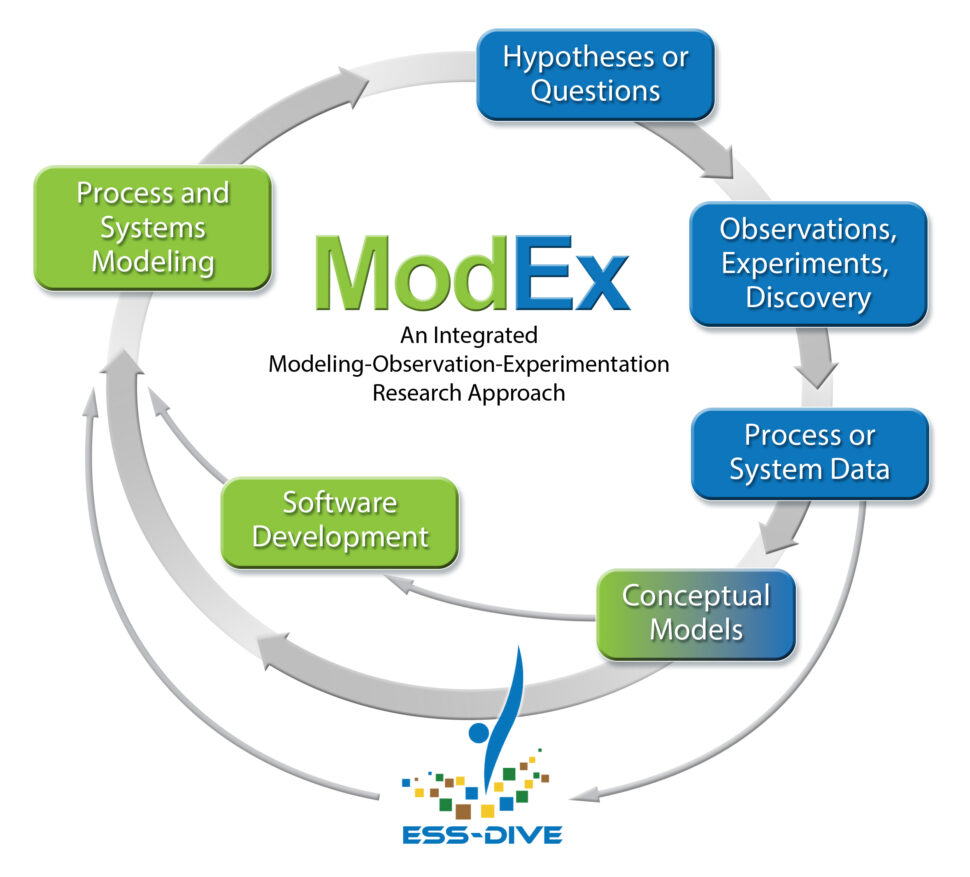ModEx Approach
The Environmental System Science (ESS) program targets terrestrial, watershed, and coastal systems whose current representation or large uncertainties in process and multi-scale models of the Earth system represent significant knowledge gaps in current and predictive understanding.
ESS uses an iterative model-experiment (ModEx) approach.
- ESS-funded researchers undertake hypothesis- and discovery-driven research, which generates observational and experimental data through lab- and field-based studies. These data are then incorporated into the ESS data system known as ESS-DIVE (Environmental System Science Data Infrastructure for a Virtual Ecosystem).
- The observational and experimental data are incorporated into conceptual system models.
- To enable prediction of future states, ESS-funded scientists and others develop numerical models that incorporate structural and functional components of a given system.
- Numerical models are advanced through the addition of more observational and experimental data, but they are also used to identify opportunities for additional field and lab-based research to fill gaps in understanding system structure and function.

Integrated Model-Observation-Experiment (ModEx) Paradigm. The Biological and Environmental Research program’s ModEx approach integrates process research, which involves observations, experiments, and measurements performed in the field or laboratory, with modeling research, which simulates these same processes. This integrated loop ensures that models incorporate state-of-the-science knowledge about critical systems, and the resulting improved models can be used to guide field and laboratory research to inform future decisions.
